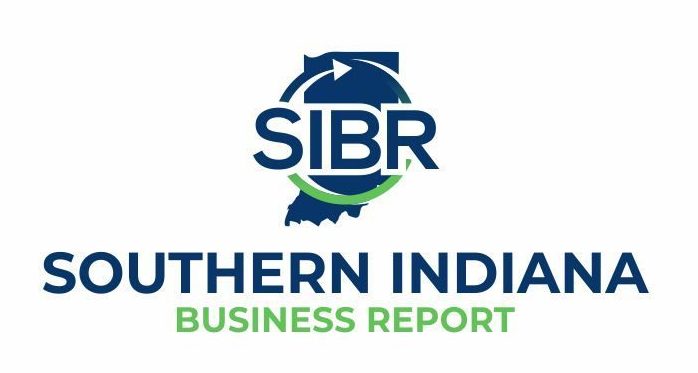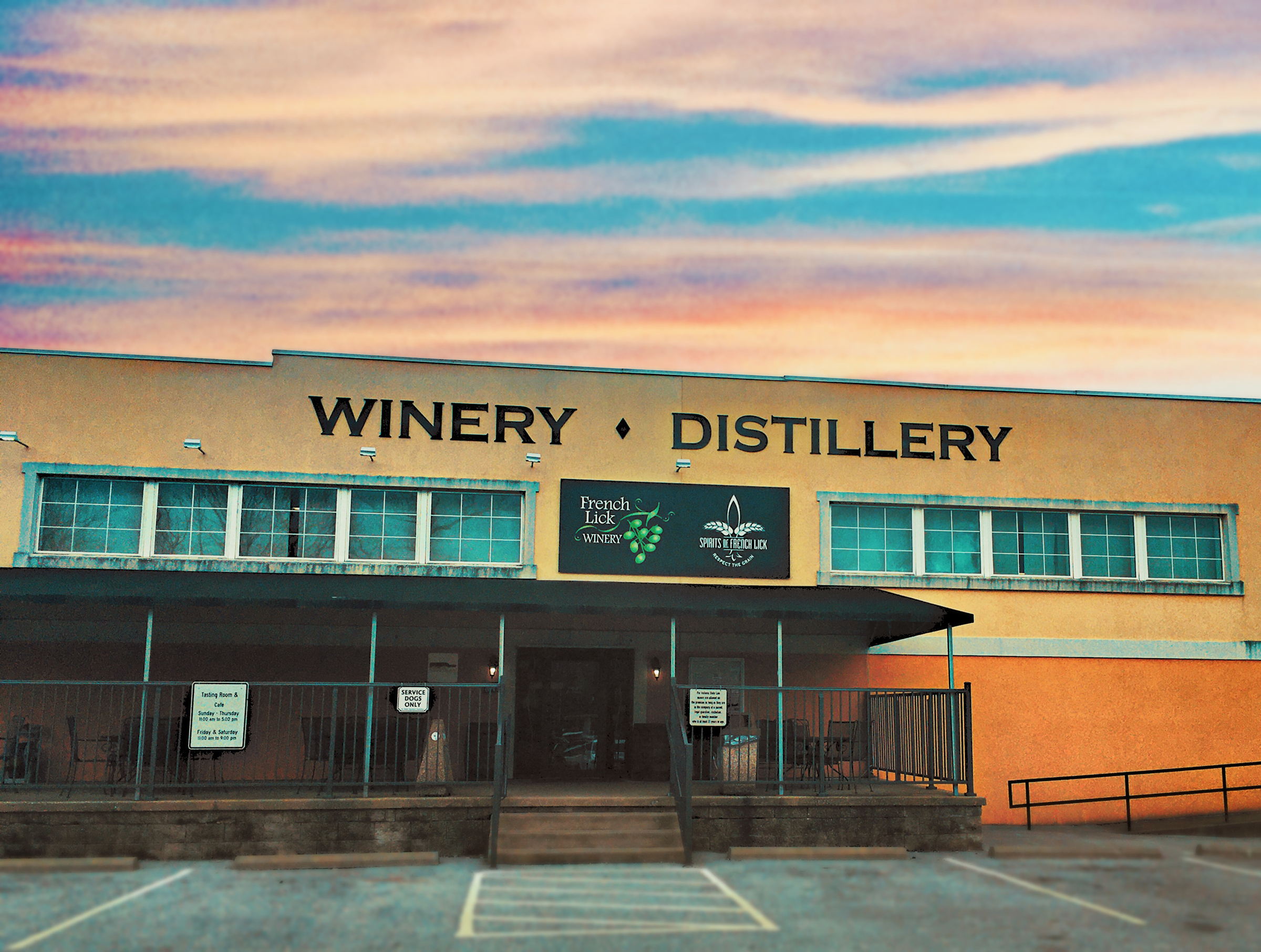By Miles Flynn | Southern Indiana Business Report
WEST BADEN SPRINGS — For a quarter of a century now, French Lick Winery has been building its reputation and serving an ever-expanding territory across Indiana and beyond. And for the last five years, co-owned Spirits of French Lick has grown the locally crafted offerings to include bourbon, brandy, botanical spirits and American whiskey.
The driving force behind the success is the Doty family and its dedication to quality. In fact, several of the French Lick Winery varietals and Spirits of French Lick grains come from the soil of a Hoosier Homestead Farm in nearby Martin County that’s been in the family of co-founder Kim Doty for generations. The eight-acre Heaven’s View Vineyard was planted in 1997 on the highest part of the farm, overlooking the East Fork White River.
While Kim and John Doty remain actively involved with the business they began in 1995, handling more day-to-day matters now are members of the next generation of the family: brothers Nick and Aaron Doty — both winemakers — and Nick’s wife Laurelin, who serves as director of operations. “She keeps this place running,” Nick commented.
French Lick Winery
French Lick Winery began operations in the basement and sunroom of the Beechwood Mansion — the home built in 1915 by Ed Ballard during his time as owner of the famed West Baden Springs Hotel, local gambling houses, and the Hagenbeck Wallace Circus.
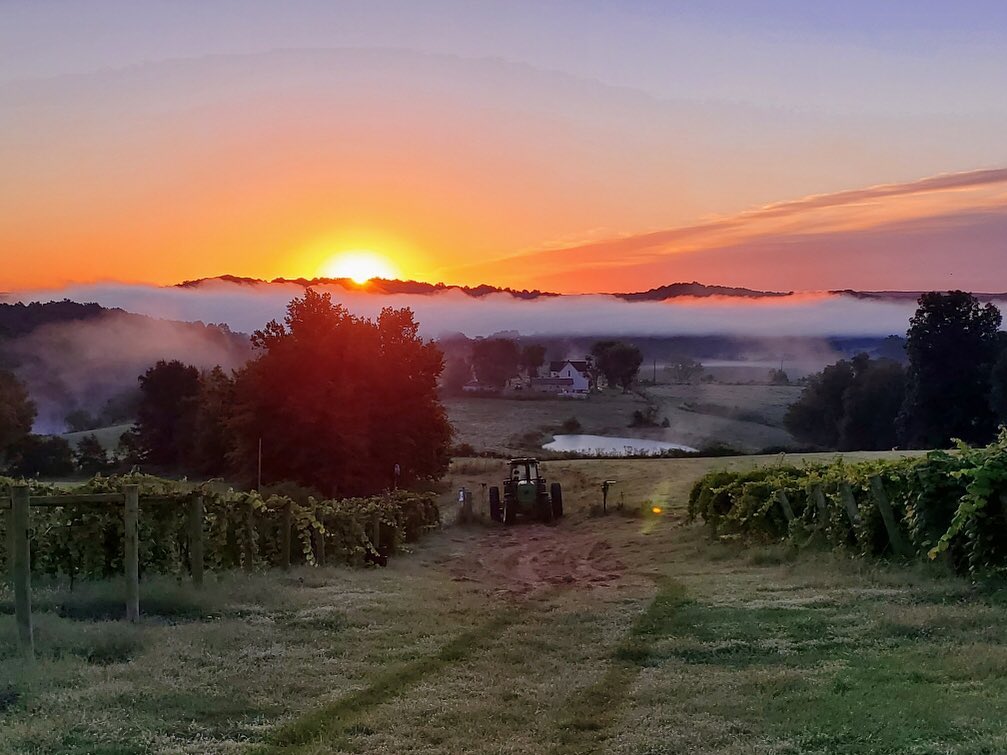
John grew up on a dairy farm, and a milk agitator purchased from a relative was used in the Doty family’s early winemaking. The venture began with only four or five wines and total production of about 650 gallons. Today, Nick said, those numbers have grown to 32 wines and approximately 65,000 gallons produced in 2020 — or more than 300,000 bottles.
The expansion in offerings and production came with a physical expansion of the winery. In 2005, the business completed its move a short distance to the north, to its present home, in a portion of what had for many years been a Kimball piano plant.
Indiana’s wine industry has followed a similar trajectory. When French Lick Winery got its start, Nick said, it was the 11th winery in the region. Today, there are more than 100 wineries around the state. “Indiana’s not what you think,” Nick said.
Helping to drive the growth have been efforts such as work to achieve designation of the Indiana Uplands American Viticultural Area as a federally recognized grape-growing area. The Indiana Uplands Wine Trail, a group of nine wineries around the southern part of the state, also helps raise the profile of local wines, including those made at French Lick Winery.
“Wineries are kind of the poster child for agri-tourism,” Nick commented.
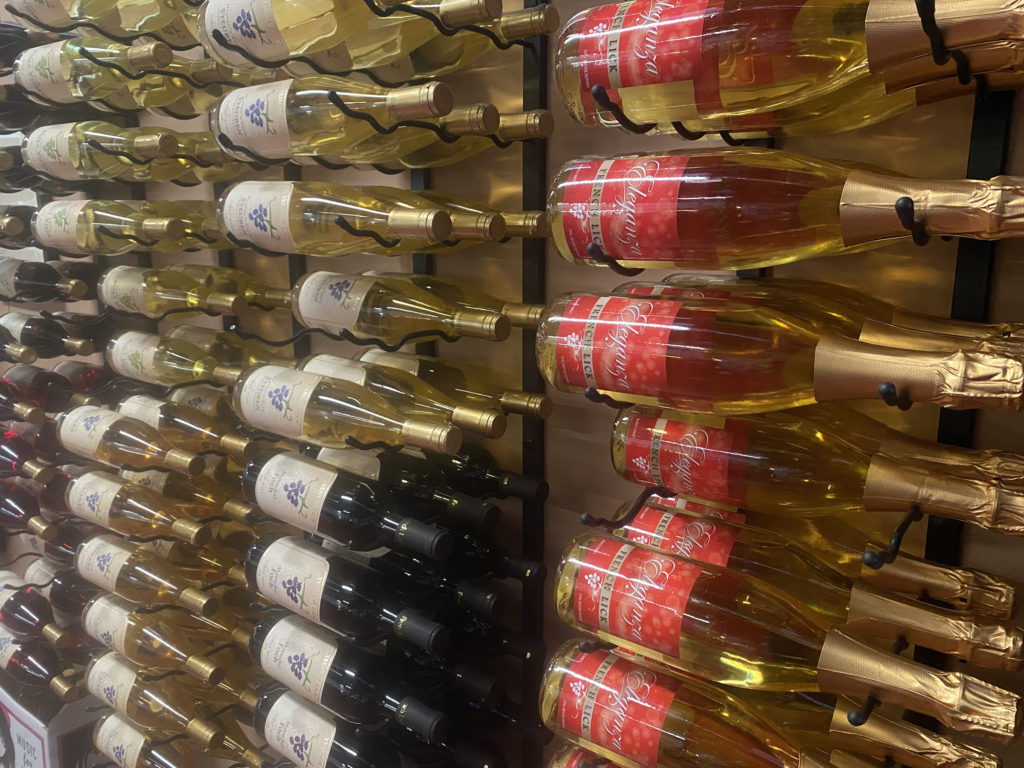
According to Nick and Aaron, the growth of that friendly competition helps all wineries in the region. In fact, the brothers happily teach all comers how to make wine — although, they said, not French Lick Winery wine.
One way French Lick Winery positions its offerings to stand out from the crowd is through unique labeling. The sweet wines are distinguished by labels featuring Coco, the business’ playful hand-drawn mascot in Breton shirt and beret, in various poses. The estate label is reserved for dry, semi-dry, sparkling and fortified wines.
French Lick’s blackberry wine remains a perennial favorite, Nick said, and is so popular that they just can’t make enough of it. “Eating a blackberry off the vine is how I’d describe our blackberry wine,” he shared.
That attention to customers’ tastes is a guiding principle for the winemakers, and it’s one of the special ingredients they credit for French Lick Winery’s continued success.
Spirits of French Lick
Spirits of French Lick got its start after the state’s decision to allow artisan distillers to operate in Indiana, and the business has been fermenting, distilling and barreling since April 2016 as the state’s largest pot-still distillery. It was no small capital investment, especially considering how two, five or more years of aging might be required before products hit the shelves. (The business’ nearby rickhouse currently holds about 3,000 barrels, and others are stored at the production center itself.)
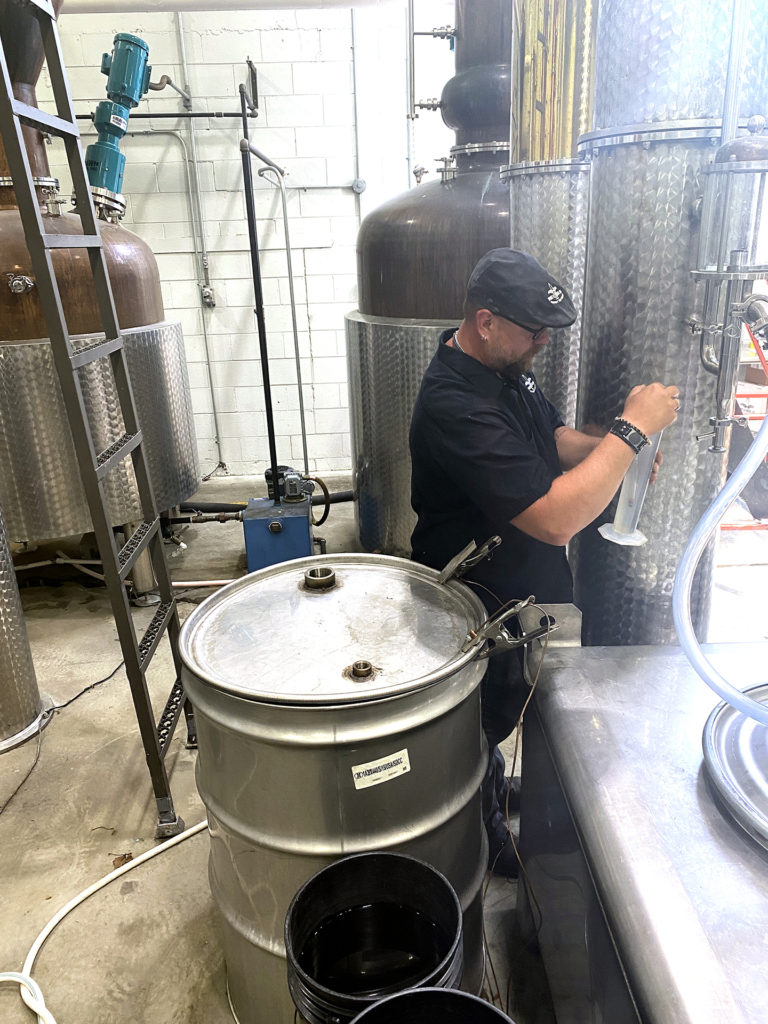
Nick explained there’s a “night-and-day” difference between making wines and spirits. Therefore, most creative control over the spirits is in the hands of Alan Reed Bishop, head distiller, and Stephen McNeely, assistant distiller.
Alan’s early years were spent on a tobacco farm about 40 miles east of French Lick, in Pekin, and a still was “just another piece of farm equipment.” In his words, he “grew up in vices.”
During his formative years, his family gave him instructions on how to build a 10-gallon still and operate it without blowing himself up. He began experimenting. “I found out about 2,000 ways not to make whiskey and a couple of ways that kind of work to some extent,” he laughed.
Organic plant breeding and gardening were other big parts of his early life, and he put all of those skills to work at Spirits of French Lick in the fall of 2015. Alan said the same commitment to quality and local ingredients that’s a guiding principle at the winery is also a central tenet at the distillery. “Distillation is inherently agricultural,” Alan noted.
According to Dawn Schnell, director of marketing for the businesses, the ace up Alan’s sleeve is the fact he’s steeped in the local history of distilling — often illicit — and is able to blend those stories and that inspiration into the products themselves in an almost magical way. “He has so much passion about it,” she shared.
There were 155 distilleries in the six-county Indiana “Black Forest” region prior to 1914, Alan said. Today, Spirits of French Lick is the only operation in the area that’s selling commercially. He feels Spirits of French Lick, as that sole enterprise, has a duty to engage in “necromancing” — bringing the dead back to life — by sharing their stories through its offerings. “Sometimes they’re a little scandalous,” he added.
One of his favorites is Mattie Gladden, the Salem madam who’s the inspiration behind The Mattie Gladden Bottled in Bond Bourbon from Spirits of French Lick. Despite her notoriety, her story’s been almost forgotten over the years. “No one wants to write about the successful whorehouse on Main Street,” Alan explained.
There are plenty of other stories Alan would like to explore, too, including the builder of French Lick Winery’s original home: Charles “Ed” Ballard. No details need to be made up, he said; the real lives of these people are compelling enough.
Tasting bar and restaurant
Visitors can get a taste of French Lick Winery and Spirits of French Lick offerings, along with snacks and charcuterie, at the tasting bar and gift shop, which are open Sunday through Thursday from 11 a.m.-5 p.m., and Fridays and Saturdays from 11 a.m.-9 p.m. In addition, large windows provide a view of the winemaking in progress.
French Lick Winery had operated its own Italian restaurant at the location, but COVID-19 forced the difficult choice to close the Vintage Café in April 2021. There were a lot of tears that last night, Aaron said. Nick explained the decision was made based on how difficult it had become to keep all parts of the businesses staffed. By folding the restaurant staff into the winery and distillery operations, it kept people employed and ensured those core segments of the business could operate at full strength. (There are now 23 people working at French Lick Winery and Spirits of French Lick.)
While the original restaurant closed, work with another operator has resulted in the space becoming home to newly opened Drift Coastal Italian, an upscale eatery that’s open the same days and hours as the tasting bar.
Future expansion?
French Lick Winery and Spirits of French Lick wholesale now, and their offerings can be found across the Hoosier State as well as in Kentucky and Mississippi. The business is looking to move into Tennessee next. In the early days, though, the family spent a lot of time building the brand by “training” visitors to be, effectively, the business’ sales reps for liquor stores back in their own hometowns. And family members pounded a lot pavement themselves to build their sales network. “It was just three Dotys in a van,” Nick laughed.
Aaron said when they moved into the cavernous new location, they thought they’d never need all of that room. However, now they feel they’re only about three years away from needing to grow once more. Additional land around the location could provide that needed space. Another answer might be taller wine tanks in the existing footprint. “We’ve got problems,” Nick said, “but they’re all problems of abundance.”
As the businesses continue to grow and look toward an even-brighter future, Nick, Aaron, Laurelin and the rest of the leadership team continue to rely on family love as their guiding compass in their decision-making. The money made in the process is just a tool, they said, to keep growing the business as a way of honoring of the family. “You get what you give,” Nick said. “If you give love, you get love.”

